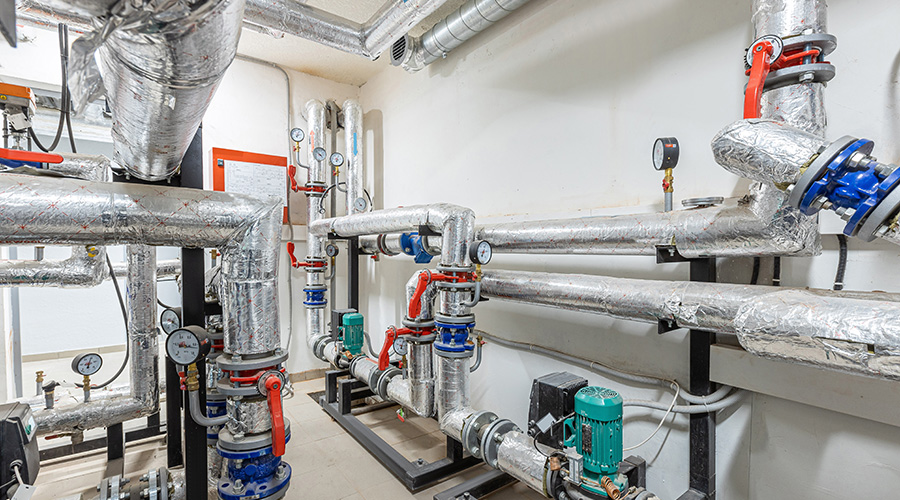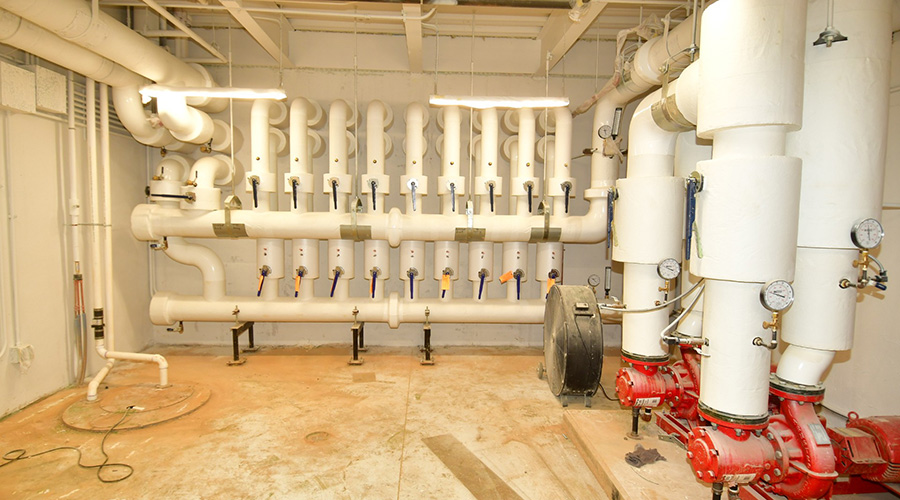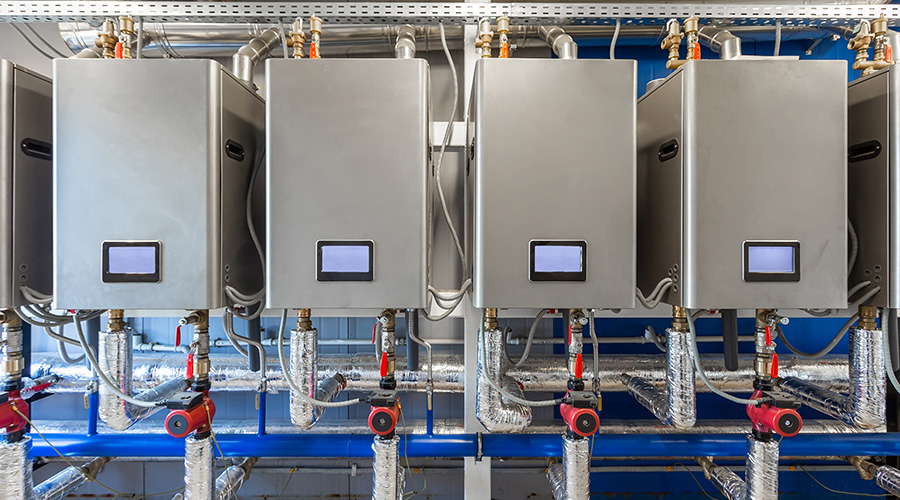University of Wisconsin Utility Plant Staff Faces Challenges Learning New System
Staff training on operating the new boilers and accompanying systems was a significant challenge for the 50-person utility plants staff, which had to maintain normal operations at the same time.
"Several of our existing boilers operated on gas and oil, so there were no major boiler operational issues other than learning how to operate the updated digital controls for the boilers," Vakili says. "The existing remaining boilers were upgraded from pneumatic controls to digital controls, as well.
"Part of the project scope included intensive training for all the staff and development of standard operating procedures. There were challenges training staff on a whole new system all the while maintaining standard operations and continually meeting the steam and chilled water demands of the campus."
The training process included a mix of hands-on, classroom and online instruction with the assistance of the boiler manufacturer and project consultants.
"We had excellent training personnel that were brought in to train all our staff on the new pieces of equipment," Dudley says. "The challenge was that we were somewhat understaffed and taking time out to do the training, finding time to do it and trying to minimize overtime was the biggest challenge."
The department was prepared for the impact training would have on the budget, thanks to a state project manager who had experience at the plant level. The project manager's background in plant operations was vital, as his past experiences helped adjust the budget to accommodate training issues.
Considering the major transformation of the physical plant, training continues even as most of the project is complete.
"We're still getting comfortable," Dudley says. "It's an ongoing learning process. We're hiring new people which are providing additional support during the transition, but I can't say we're totally comfortable yet. The major equipment in the project was phased in.
"We initially commissioned one boiler while keeping the existing plant operational. Then gradually, we would bring on other pieces of new equipment. Besides the phasing in of four new boilers, we also commissioned other major pieces of equipment like new air compressors, water pumps, cooling towers and water treatment equipment during this process. It's been a phase-in process, which has been very helpful. If you suddenly turned the plant over to us and said 'Here's the keys. Go run it,' that would have been catastrophic."
Phased-In Success
Going through the project in phases helped the physical plant's staff deal with a difficult staffing situation while ensuring the campus operations remained unaffected.
"It was a real challenge and a learning process, but the staff met the challenge and successfully managed it through the process," Vakili says. "Our advice to others would be to increase operating staff levels during the process, if possible, to reduce stress and workload on the existing staff."
Involving the experienced staff in the process the entire way also helped employees take ownership and pride in a project that figures to benefit the university for years to come.
"Even down to the operations level, it was good to have them involved in the initial concept and design," Dudley says. "(The employees) buy into the project and make things go more smoothly."
Related Topics:













